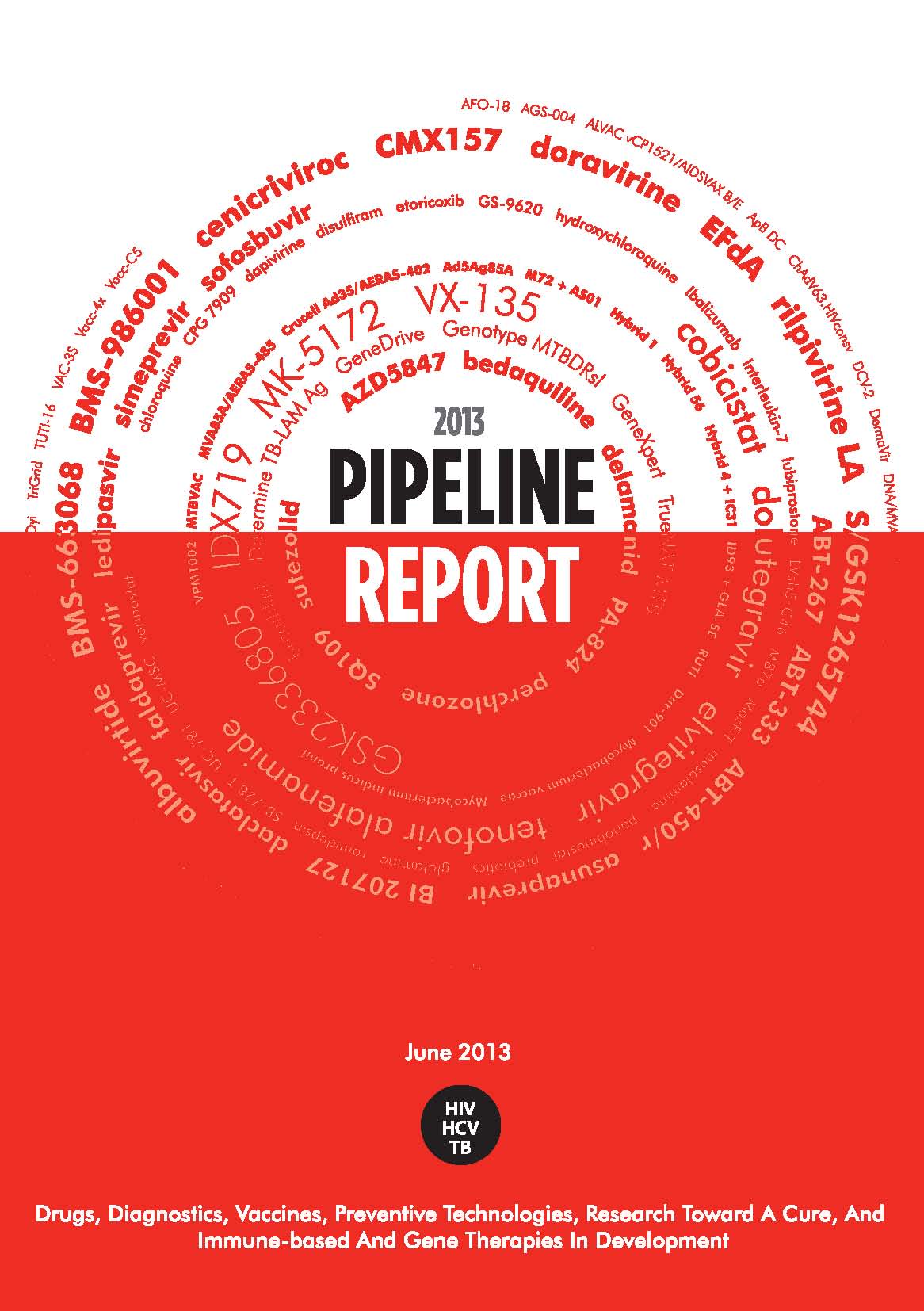
Source: Treatment Action Group
The Tuberculosis Treatment Pipeline
Better than Ever Is Not Good Enough
By Erica Lessem
Introduction
In December 2012, tuberculosis (TB) treatment reached a historic landmark with the first approval by a stringent regulatory authority of a new agent from a novel drug class in over 40 years. The U.S. Food and Drug Administration (FDA) approval of bedaquiline validates the recently revitalized global effort to develop new, better treatments for TB after decades of stagnation.
Yet the road to adequate treatment for people with TB is still a long one. First, bedaquiline has not begun to reach the up to 1 million people with drug-resistant tuberculosis who may need the drug. Delamanid, already in phase III trials, has yet to be approved by a stringent regulatory authority. As TB drugs are given in combination to prevent drug resistance, the need for improved companion drugs to truly simplify, shorten, and improve treatment for both drug-resistant TB (DR-TB) and drug-sensitive TB (DS-TB) is urgent. Yet other drugs lag even farther behind, such as the promising drug sutezolid, whose development has been thwarted by slow activity of its sponsor, Pfizer.
Faster-acting, better therapies to clear latent TB infection (LTBI) before it turns into active disease are necessary, especially for people latently infected with DR-TB, who lack evidence-based therapy to protect themselves from falling ill.
The TB drug pipeline is still scant compared to what is needed. The lack of accepted surrogate trial endpoints require phase III studies to be large, long, and expensive. Investment lags at a third of what is needed; in 2011 alone, there was nearly a US$500 million global funding gap.1
Lack of regulatory capacity threatens the ability of countries to rapidly review new treatment options, and ensure that postmarketing studies and pharmacovigilance are carried out. Inertia and inflexibility by policy makers at national and global levels may lead to slow adoption of new treatments even after approval. Continuing stock-outs around the world jeopardize access to both new and existing drugs. These market inefficiencies, plus lack of cooperation from drug manufacturers, have contributed to high prices for second-line drugs, which are utterlyunaffordable in these times of austerity.
To reach the goal of zero TB deaths, zero new TB infections, and zero TB suffering and stigma, people with TB and LTBI must receive treatment regimens effective against the infecting strain. This points to the need for rapid universal drug susceptibility testing, as discussed in the TB diagnostics chapter. Shorter, more tolerable regimens are needed for all forms of TB; in the case of DR-TB, they must also be all-oral, faster to cure, and much less toxic. TB-affected communities must play a more meaningful role in the design, implementation, and uptake of research, in line with the Good Participatory Practice Guidelines for TB Drug Trials released in 2012.2 Countries must rapidly build regulatory capacity, and national treatment programs need to become more flexible in adopting new tools. Programs should also ensure consistent drug stocks through improved supply-chain management and procurement, while manufacturers must provide steady, safe drug supply at lower prices. People with TB need better access to existing and new treatment options, and the auxiliary care and psychosocial support necessary to make care patient-centric…click here to read the entire article.

